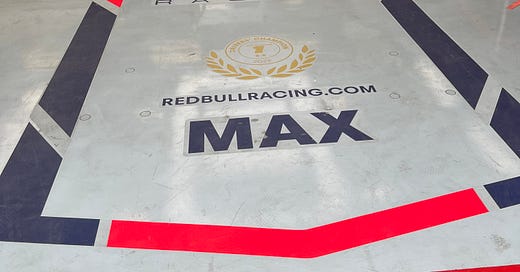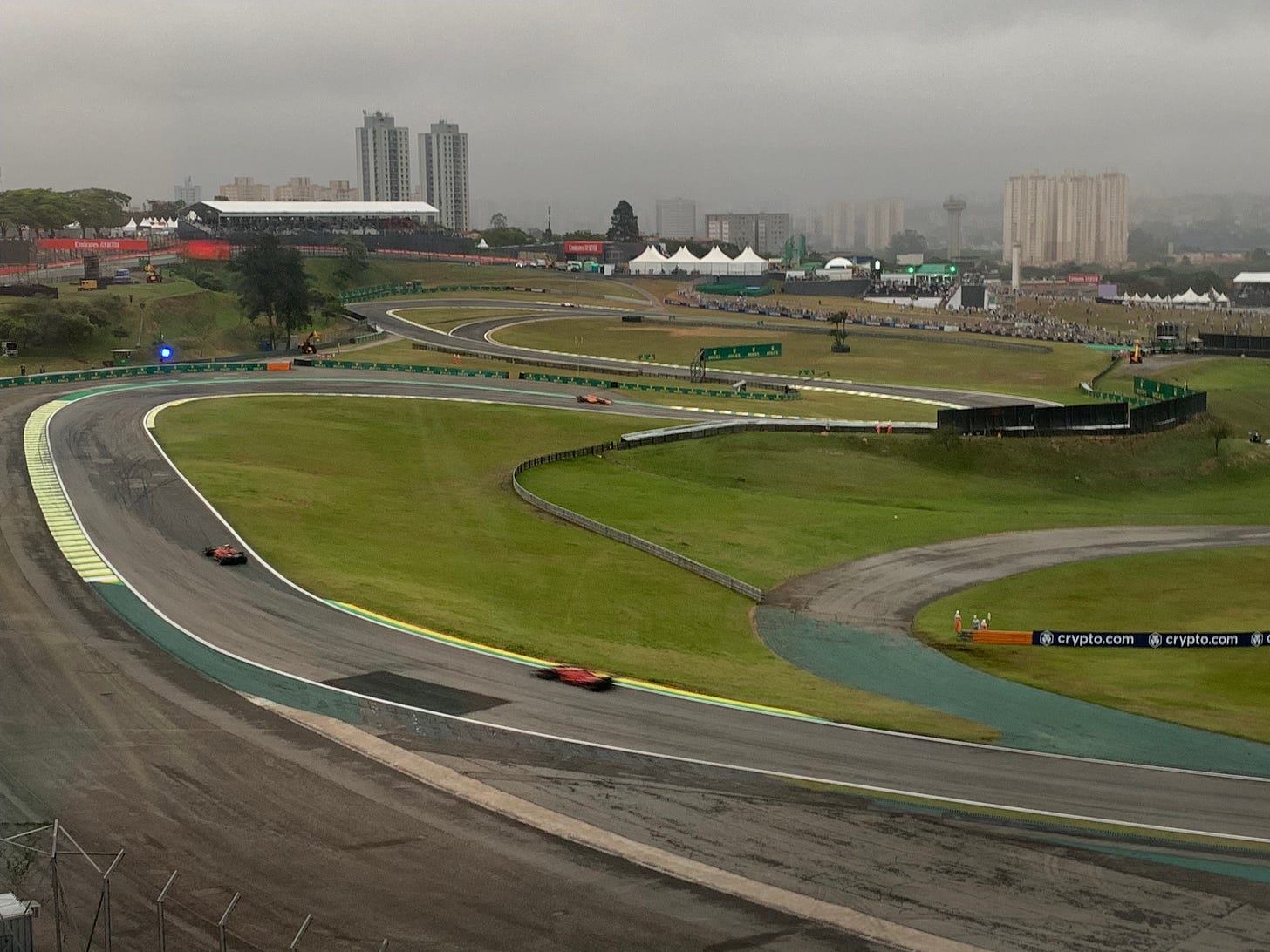Surprisingly pleasant Max
After a season in which it looked briefly like a fourth straight world championship was slipping away from him, Max Verstappen ended up doing the predictable, again
A funny thing happened on the weekend: Max Verstappen won the Formula 1 world championship.
Now, you might be saying: Um, doesn’t Max Verstappen often win the Formula 1 world championship? How is this funny?
And, OK, fine. It’s not a weird or unusual occurrence. Verstappen did win the previous three world titles. But what is different about this one is that Verstappen, the 27-year-old Dutchman, hasn’t won a race that didn’t take place in a monsoon since June. His Red Bull Racing car, so fast last year that he could have won races while clipping his nails, was maybe the fourth fastest on the grid over the second half of the Formula 1 season. The team’s performance, to use a term that is more common over there in Milton Keynes or Brackley or Woking, has been pants.
And yet, he won again. Kind of easily, in the end, with a fairly routine fifth-place finish in Las Vegas and two races still to go on the 2024 calendar.
How did he do this? And what does it mean for next season? Why, I’m glad you asked.
Out of the traps
Verstappen started the season hot. He was very much not pants. Before pre-season training was even over, Mercedes AMG team boss Toto Wolff declared that the Red Bull car was so good, and Verstappen so skilled at driving it, that the only question was who would finish in second place. This is not a super-great way to promote interest in your sport, but points for honesty.
For a while, it looked like Wolff had called it correctly. Verstappen won four of the first five races and seven of the first 10. Another Dutch procession was on, and there were questions being asked about whether F1 was in danger of losing the many new fans who had come to the sport in recent years, particularly in North America. Were people who were drawn in by Netflix’s Drive to Survive going to drift away if yet another season was a series of races in which everyone chased Verstappen around the track for somewhere between 50 and 70 laps?
That stopped being a question sometime in July.
Parity, baby
That opening stretch of dominance from Verstappen offered a hint of what was to come, if you looked closely. The three non-Max victories were claimed by three different drivers, Carlos Sainz (Ferrari), Lando Norris (McLaren) and Charles Leclerc (Ferrari). A fourth driver, George Russell (Mercedes), won the 11th race. This was notable because Sainz was the only non-Red Bull driver to win a race in 2023, and he did it just the once. Suddenly there were signs that several teams had managed to make their cars competitive, even as Verstappen was racking up wins.
At the same time, the fact that several teams were competitive, and not just one driver nipping at Verstappen’s heels, offered the key to how Max was ultimately able to maintain his world-championship lead even as he became mired in the pants part of his season. So many other teams and drivers were putting in strong races that it kept any one driver from piling up enough championship points week to week to seriously threaten Verstappen.
The guy who came closest was Norris, but he didn’t win his second race until late August and his third a month later. McLaren rather belatedly figured out that they should have prioritized Norris’s title fight at the expense of his teammate Oscar Piastri, who had two wins himself by that point, but in the end it didn’t matter. The McLarens were forced to make changes to their rear wings after Norris’s last win in Singapore, after complaints that they were not up to specifications, and neither driver has won a race since.
Blame it on the rain
Verstappen formally won the title on Saturday night in Vegas, but he effectively won it a couple weeks earlier at the Brazilian Grand Prix in Sao Paulo. There, amid a deluge and some fortunate red-flag luck that allowed him to change tires without losing much pit-stop time, Verstappen reversed the trend of losing a little bit of his lead each week to Norris and actually built it back up again with a dominant win.
A fluke of a win? Kinda. There’s something a little funny about the fact that the once-imperious Red Bull needed the great equalizer of a rain storm to give Verstappen a chance to win a race. But these are also the kinds of things that happen over a 24-race season. The advantage of building a giant lead over the first 10 races is that it eliminates your rivals’ margin for error. If something should happen to break your way and you end up winning a race you didn’t expect to win, suddenly you are golden.
Side note: I was at the race in Brazil a couple of years ago, and locals say the tendency toward wild weather swings is a staple of the race.
Here’s a photo I took of dark clouds forming over Interlagos. Ominous!
That storm didn’t end up impacting that race, but in what is undoubtedly the biggest first-world problem of my life, it hit after the race finished and meant I was unable to take the helicopter back to the hotel. 🥲
Five in a row?
The record will show that Verstappen won his fourth straight title comfortably, but it remains that the 2025 season looks like it might be the first one in literal decades in which something like half a dozen drivers begin the season with a shot at the championship.
There is Max, obviously, and Norris and Piastri with McLaren, plus Leclerc and his soon-to-be-teammate Lewis Hamilton. He’s only a seven-time champion and leaving Mercedes for Ferrari in a move that, to be honest, I don’t particularly understand. He’s 39 now and has been the second-best driver on his team for two seasons. Ferrari have presumably signed him for his fame and résumé, which makes some sense for business and marketing reasons, but Sainz, nine years younger, has been a solid second driver for the team for a few years now. Bringing in a fading superstar to replace him seems like the plotline to a film — I believe Brad Pitt plays a similar character in the upcoming F1 movie, come to think of it — instead of something you would actually try in real life.
Anyway. Throw in the fact that Red Bull has lost several senior members of their staff, who’ve taken promotions with other teams, and it’s unclear if Verstappen’s car will be any less pants at the start of next year than it has been through the second half of this season, and 2025 looks a lot like a crapshoot. Which is something that rarely has happened in the last few decades of F1 racing.
Or, Verstappen will romp to a fifth straight title and everyone will laugh about that time they thought that Formula 1 was going to have a truly unpredictable season.






